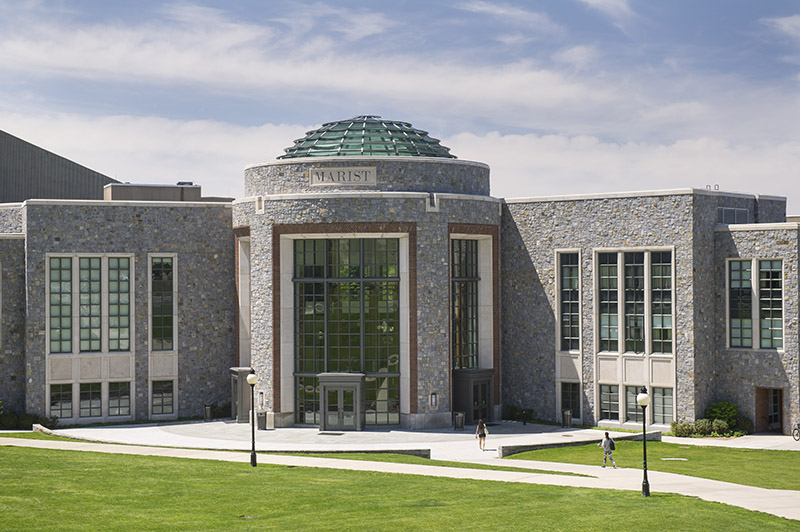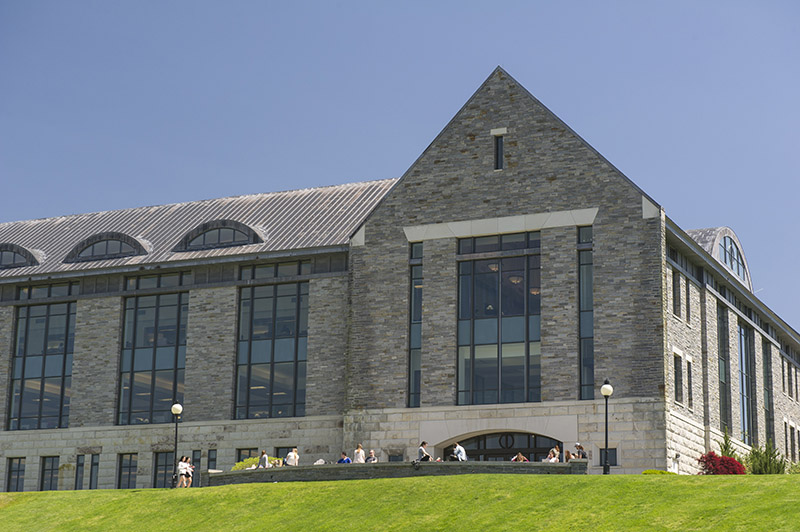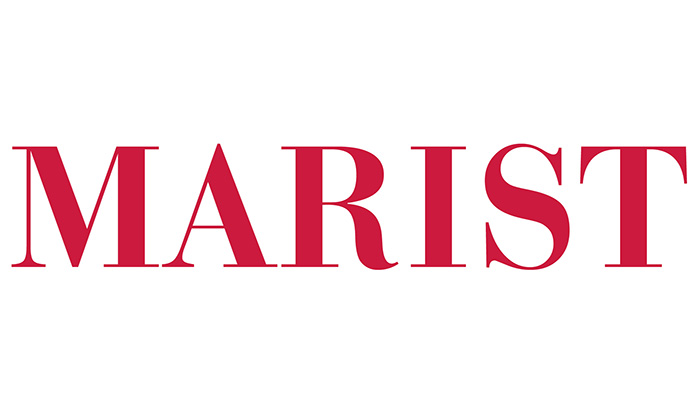This article originally appeared in AMBITION, the digital magazine published by the Association of MBAs (AMBA).
Kelly Holmes, dean of graduate admission at Marist College in Poughkeepsie, NY, is wearing quite a few hats these days. In addition to managing admissions processes for 15 graduate programs, she is also helping the College implement its new five-year strategic plan, which is focused on “ensuring student success, promoting innovation, and advancing the social good.”
In addition, Dean Holmes has recently been overseeing Marist’s launch of BusinessCAS™, the Liaison-powered Centralized Application Service (CAS™) for graduate management education programs, and she’s found time to serve as an active member of Liaison’s BusinessCAS advisory board as well.
She recently spoke with BusinessCAS Consultant Bob Alig to discuss Marist’s goals for the years ahead, its 100% online MBA program, and the benefits of offering a flexible admissions experience that reinforces existing marketing and branding initiatives.

Bob Alig (BA): What are you focusing on at Marist College right now, Kelly?
Kelly Holmes (KH): My goal this year is to create a more efficient applicant experience through the use of innovative technology, which in turn will impact workflow within the office. It sounds cliché but we want to work smarter not harder. That involves making sure we have the right systems in place to move students through the pipeline successfully. Our strength here at Marist is customer service. Once we get a student into our pipeline, we hold their hands throughout the process. That’s one of the reasons we’re joining BusinessCAS — It will help us streamline the process for applicants and admission staff.
We were one of the first schools to adopt Liaison’s Enrollment Marketing Platform (EMP™), and now we see EMP and BusinessCAS as a perfect marriage for us. Not only do we have a CRM that manages our communication plan through the funnel, but now our application will also be integrated with EMP. It’s another chance for us to implement the right technology to create greater efficiency.
Marist actually already has several active CASs on campus. We utilize PTCAS™ [the CAS for physical therapy] and CASPA (the CAS for physician assistant studies), and now we’re also adopting GradCAS™ [the CAS for graduate programs], and PSYCAS™ [the CAS for psychology programs], in addition to BusinessCAS. We’ll be fully implementing all of these programs in 2018.
There’s great long-term potential in moving away from a home-grown system to a common web-based platform. Not only does it streamline processes, but it increases our exposure to potential students that may otherwise not know Marist exists. We’re excited about it!
BA: The president of Marist College, David Yellen, has said that society is changing dramatically in terms of diversity and that higher education should be on the leading edge of that change. Can you share a little more about the work you and your colleagues at Marist are doing around this important vision?
KH: Our new strategic plan launched in January 2018.
For graduate admissions, we’ve been collaborating with the academic schools, exploring different initiatives to implement at the admission stage so we can make private education more accessible and attractive from a programmatic perspective to those from under-represented groups. We’re discussing holistic application review, peer/faculty mentorship, student financial support, and on-campus/online student services to ensure student success. Change doesn’t happen overnight, but we are committed to increasing diversity across all graduate programs.
BA: You have said you want your team to be more focused on helping students navigate the admissions process and understand what’s really unique about Marist. Was that part of the reason you decided to look at BusinessCAS?
KH: I believe BusinessCAS, and the other CASs in place at Marist, will help us brand ourselves more effectively and also streamline a lot of the admissions processes. So instead of receiving tons of emails — with resumes and personal statements and attached files — that we have to send to different offices on campus, now we can collect all of that information in one spot. It makes us more efficient and allows us to focus on what we are really good at — providing one-on-one customer service that guides students through the admission process.
BA: Speaking of interacting with students, across higher education as a whole, students over age 35 are expected to comprise nearly one-fifth of graduating classes by 2020. Does this trend reflect your current applicant pool? Are you undertaking any initiatives in regard to this segment of the student population?
KH: The age of students within our MBA program has always skewed a bit higher than average. I think that’s because our program is 100% online and part time. We have always tailored our MBA to the working adult, keeping in mind our students have families and responsibilities that impact their ability to pursue a degree in a traditional classroom. Our MBA is asynchronous. Students can study where they want, when they want.
We also have a long tradition of maintaining partnerships with local employers as well as national associations. Part of the partnership agreement is that we offer tuition discounts to their employees and our partners, in turn, help market our program to their workers. Since our target audience is working adults, those partnerships help to increase our enrollments. They also allow us to give back to the community by offering tuition discounts — not just to employees, but also to their adult family members.
BA: That’s interesting insight, Kelly. Let’s pivot a little — what keeps you up at night at this point of the admissions cycle?
KH: Just meeting enrollments goals! It’s getting increasingly difficult to do more with less. I’m sure a lot of my peers at other institutions would say the same. Trying to reach your target audience in a saturated market with diminishing marketing dollars is a challenge. There’s no other word for it. When you see applications dipping, you hope you can convert them at a higher rate. It’s not just about quantity though, it’s important to make sure that we’re bringing in qualified applicants, moving them through the pipeline and, at the end of the day, retaining them.
BA: You’re an active member of Liaison’s BusinessCAS advisory board. Can you tell us more about what led you to join this board and how you see its value as you look ahead? How do you think the work of the advisory board, in collaboration with Liaison colleagues, might be a resource and a support to you and your peers?
KH: It’s great for me in terms of being able to have a peer group to reach out to when I have questions. That’s my selfish reason for wanting to be on the advisory board! But I also believe in the service and appreciate the opportunity to help mold the product. As a new adopter of BusinessCAS, I have a vested interest in making sure that I’m giving feedback when I can. I just want to make sure that everybody understands the different types of programs out there and how maintaining some flexibility in a system is critical to allowing institutions to receive and review last minute applications. It truly can mean the difference between meeting enrollment goals or not.

BA: How do you think BusinessCAS will help participating programs extend their outreach, engage with prospective students more effectively, and launch new programs?
KH: BusinessCAS makes it easy for prospective students to research institutions, and it streamlines the process of applying to one or several programs with a single application. BusinessCAS will help Marist attract potential MBA students to our AACSB-accredited program by offering a flexible, personalized admission experience.
It’s not unusual to receive a call from a prospective student the week before the semester begins who is ready to apply! BusinessCAS provides the opportunity to review applications “on-demand” and to communicate the message we want to communicate — “It’s not too late, and we’re here to help you reach your academic goals.”
BA: How do you envision BusinessCAS helping schools not only compete but thrive in this time of heightened competition? As we look ahead, how can Liaison and BusinessCAS better support you and your team?
KH: As I’ve mentioned before, just being in the mix with other schools that students are looking at is going to help us compete. I also think our ability to move an application through quickly is going to help us compete, as will our ability to respond quickly not only in WebAdMIT, but in EMP as well.
There are a lot of moving parts that I need to manage, and BusinessCAS will help me do that. We’re always looking for ways to be more innovative and effective, and for me this is the answer. I don’t see any other companies out there that can do what Liaison does. The more exposure BusinessCAS gets, the more exposure Marist gets. It’s a win, win!
Learn more about BusinessCAS at businesscas.org.
